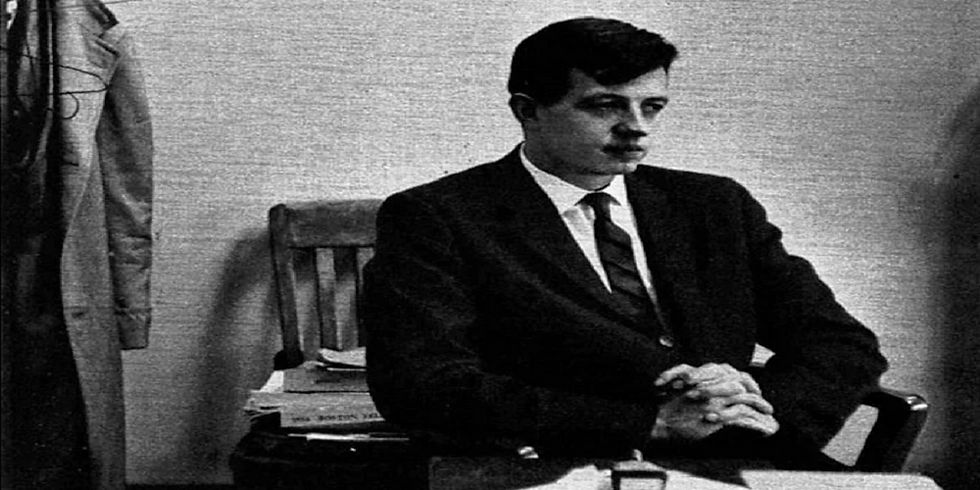Key Points: Tess of the d'Urbervilles Metaphor and Imagery
- bookeygetbooks
- Feb 24, 2023
- 4 min read
Updated: May 24, 2023

Free Audio Summary | Get More Book Summaries
Tess is a complex and multifaceted character in Thomas Hardy's novel "Tess of the d'Urbervilles". She begins the story as a naive and innocent young woman, eager to improve her family's fortunes by working for the wealthy d'Urberville family. As the story progresses, she experiences various conflicting emotions and struggles to reconcile her desires with her sense of morality. Tess is also portrayed as a victim of the societal and cultural constraints that limit women's agency and mobility during the Victorian era. Despite her struggles, Tess remains a resilient and determined character willing to fight for what she believes in, even in the face of overwhelming adversity. Throughout the novel, Tess's character is defined by her vulnerability, her sense of responsibility towards her family, and her deep passions and emotions.
1.1.A naive and innocent young woman
At the beginning of the story, she is presented as a naive and innocent young woman who is eager to improve her family's fortunes by working for the wealthy d'Urberville family. When Tess first arrives at the d'Urberville estate, she is initially excited by the prospect of working for a wealthy and powerful family. However, as she becomes more familiar with the family and their lifestyle and more embroiled in a relationship with Alec d'Urberville, she begins to experience a range of conflicting emotions and struggles to reconcile her desires with her sense of morality. She feels increasingly uncomfortable and out of place, struggling to adapt to their expectations and way of life.
As her relationship with Alec develops, Tess experiences a range of emotions, from reluctance and fear to desire and passion. She struggles to reconcile her growing feelings for Alec with her sense of morality and her desire to remain faithful to her true love, Angel Clare.
1.2.An isolated and alienated woman
As the novel progresses, Tess becomes increasingly isolated and alienated from those around her, including her family and her husband, Angel. She feels trapped by her circumstances and is unable to escape the memory of her past, which continues to haunt her. Despite her struggles, however, Tess remains committed to her beliefs and her sense of morality, even in the face of overwhelming opposition. For example, she refuses to marry Alec, even when it seems like her only option because she knows that it would be a betrayal of her own values. Similarly, she refuses to be shamed by society for her past, instead insisting on her own worth and value as a person. Through these actions, Tess demonstrates her resilience and her determination to live according to her own principles, no matter the cost.
1.3.A victim of the societal and cultural constraints
Throughout the novel, Tess is subject to the judgment and condemnation of society for her working-class background and her relationships with men, leading to her social isolation, rejection, and punishment. These experiences underscore the devastating impact of societal norms and expectations and highlight the limitations imposed on individuals who fail to conform to these standards.
The novel portrays Tess as a victim of the patriarchal society in which she lives. Her background as a working-class girl from a rural area puts her at a disadvantage from the start, limiting her access to education and economic opportunities. When she is sent to work for the wealthy d'Urberville family, she is vulnerable to the advances of Alec, who uses his social and economic power to take advantage of her. Even after their relationship ends, Tess is judged and condemned by society for her past, while Alec is able to continue living his life without facing any consequences.
Furthermore, when Tess meets Angel, she initially sees him as a way to escape the limitations of her past and start a new life. However, when she reveals her past to Angel, he rejects her, which further isolates Tess from society and exacerbates her feelings of shame and unworthiness. The novel thus portrays the ways in which societal and cultural constraints limit women's agency and mobility and prevent them from fully realizing their potential.
1.4. Tess’s vulnerability and her deep sense of responsibility
Tess's character is defined by her vulnerability and her deep sense of responsibility towards her family, particularly her parents and younger siblings. Despite her own struggles, she remains fiercely devoted to her family and is willing to sacrifice her own happiness for their well-being. At the same time, Tess is also a deeply passionate and emotional character, driven by her desires and her intense longing for love and acceptance.
Tess's vulnerability is emphasized through her various struggles and hardships, including her sexual assault by Alec, her failed marriage to Angel, and her eventual arrest and execution. Despite these challenges, Tess remains committed to her family and their welfare, taking on various jobs and responsibilities to support them financially. Her devotion to her family is further highlighted by her willingness to endure humiliation and judgment in order to keep her family's reputation intact.
At the same time, Tess's emotional and passionate nature is evident in her relationships with the various men in her life, including Alec, Angel, and even her childhood friend and admirer, Mr. Clare. Her longing for love and acceptance is a constant theme throughout the novel, driving many of her actions and decisions. However, this desire often leads to conflict and heartache as Tess struggles to reconcile her own desires with the expectations of society and the men in her life.
2Conclusion
In conclusion, Tess Durbeyfield is a character who is richly developed and multifaceted, reflecting the complexities of the human experience. She is both vulnerable and determined, passionate and responsible, and her struggles and triumphs throughout the novel speak to the challenges and opportunities faced by individuals of all backgrounds and walks of life. As a symbol of the societal and cultural constraints that limit women's agency and mobility, Tess's character serves as a powerful reminder of the importance of recognizing and addressing the inequalities that continue to shape our world today. Tess is a character who embodies the complex and often conflicting values and desires of the Victorian era, as well as the struggle to reconcile personal desires with social and moral expectations. Her experiences highlight the vulnerabilities and struggles of women in this period and serve as a powerful commentary on the social and economic inequalities of Victorian England.


















Comments